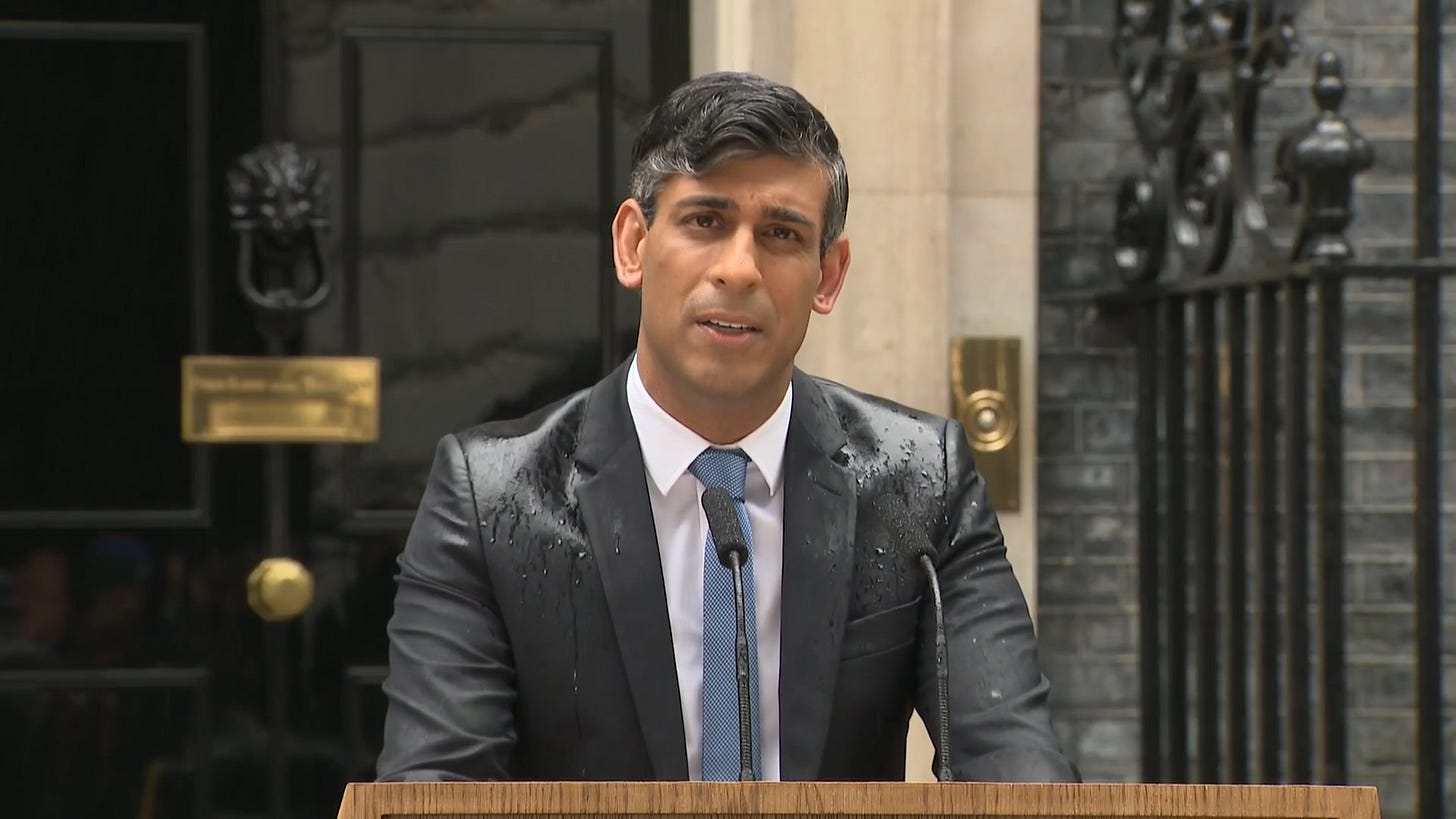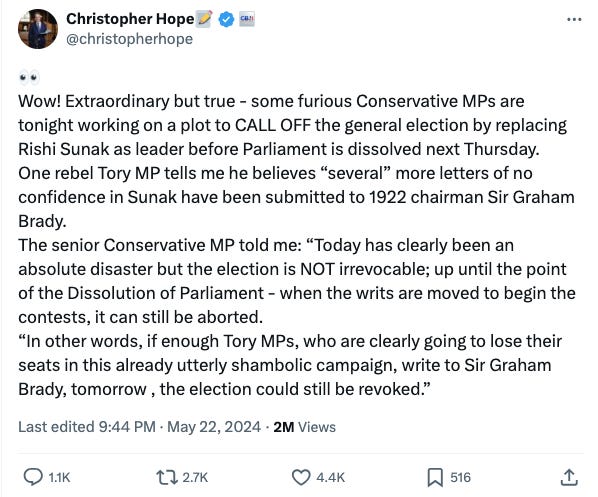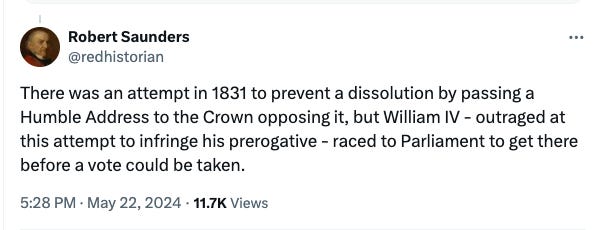Thoughts on the calling of a general election
And thoughts on whether our constitutional excitements are coming to an end
When the general election was suddenly called I was in the middle of writing about another legal topic for Prospect.
And then when the current Prime Minister squelchingly announced a general election, I was asked if I could quickly write about that instead.
*
My first thought was that this new general election told us something about the unintended consequences of constitutional reform - for the Fixed-term Parliaments Act 2011 was supposed to put an end to this sort of thing.
Had the Act had its intended prime effect, we would still be 4/5 way through the 2020-25 parliament, which would have followed the 2015-20 parliament.
But, of course, that did not happen.
Instead of an orderly and leisurely succession of predictable five-year parliaments, we have had consistent political chaos and constant constitutional drama.
We had a general elections in 2017 and 2019 by sidestepping (in two different ways) the primary object of the 2011 Act, and then the Act itself was repealed in 2022.
That is not to say the Act was ineffective: it certainly had effects.
Indeed the extraordinary events of late 2019 - where Parliament insisted with the Benn Act that there could not be a no-deal Brexit which, when enacted, enabled the then Prime Minister to get opposition support for a December general election - only make sense by knowing the constraints of the 2011 Act in stopping that Prime Minister calling a sooner election.
And the course of that 2017-19 “hung” parliament - a much underestimated parliament, though it certainly frustrated those who dislike having parliamentary checks and balances on executive power - can also only be understood by knowing that a Prime Minister was not able to easily call another general election.
The Fixed-term Parliaments Act 2011 certainly was an effective piece of legislation, they were just not the effects that were intended.
*
But writing about that 2011 statute did not seem enough to carry a Prospect article.
I was stuck.
And then…
…and then this was tweeted - and widely retweeted:
It is safe to say that in thirty years of thinking about constitutional issues I have never considered such a question: could a general election, once called, somehow be un-called?
What a notion!
Constitutional law should not be this fun; constitutional law should be dull.
And not only had I never considered it, I also could not think of an immediate answer to the question.
The historian and commentator Robert Saunders mentioned that in 1831 the following happened:
Perhaps a vote like this could have been passed by a majority of the House of Commons, but it would have had to have been done very quickly.
And it would have required, well, a majority of the House of Commons - and those government backbenchers aghast at the sudden general election are presumably a minority.
So that was not going to happen.
*
The only other realistic way would be for there to be a change of Prime Minister - or a change of mind by the Prime Minister.
And that would all have to been done before parliament dissolved tomorrow (30 May 2024).
That has not happened.
And it is difficult to think how it could have happened, for there would not have been enough time for a vote of no confidence and a new election for a new Conservative leader. It also assumes that the King would have accepted the new leader immediately as Prime Minister.
It is a measure of how strange the last few years have been that such a possibility was canvassed.
*
Another way for the general election to be un-called could be perhaps a judicial review going even further than “Miller II” - which merely quashed a prorogation - that attacked the very proclamation of a general election.
That would have been a breathtaking (and rather entertaining) invitation to the courts for an extension of the remit of judicial review - and surely those government supporters who were upset by the Miller cases would not resort to such an ambitious and bold legal claim.
And now, we will perhaps never know how such an un-calling of an election would be done in practice.
*
As I mention in the Prospect article (please click and read), it may be that with this general election our period of constitutional giddiness is coming to an end.
Or it may be that there are new constitutional excitements ahead: the moves towards Irish unification and Scottish independence, towards a closer and more sustainable relationship with the European Union, and towards a reformed House of Lords. There may even be scope for a re-examination of the role and powers of the Crown as and when there is a new monarch.
So a “brace” - if not a “brace, brace”.





Thank you for your erudite, illuminating and sparkling ideas that you shared with us. Thoroughly enjoyable as always.